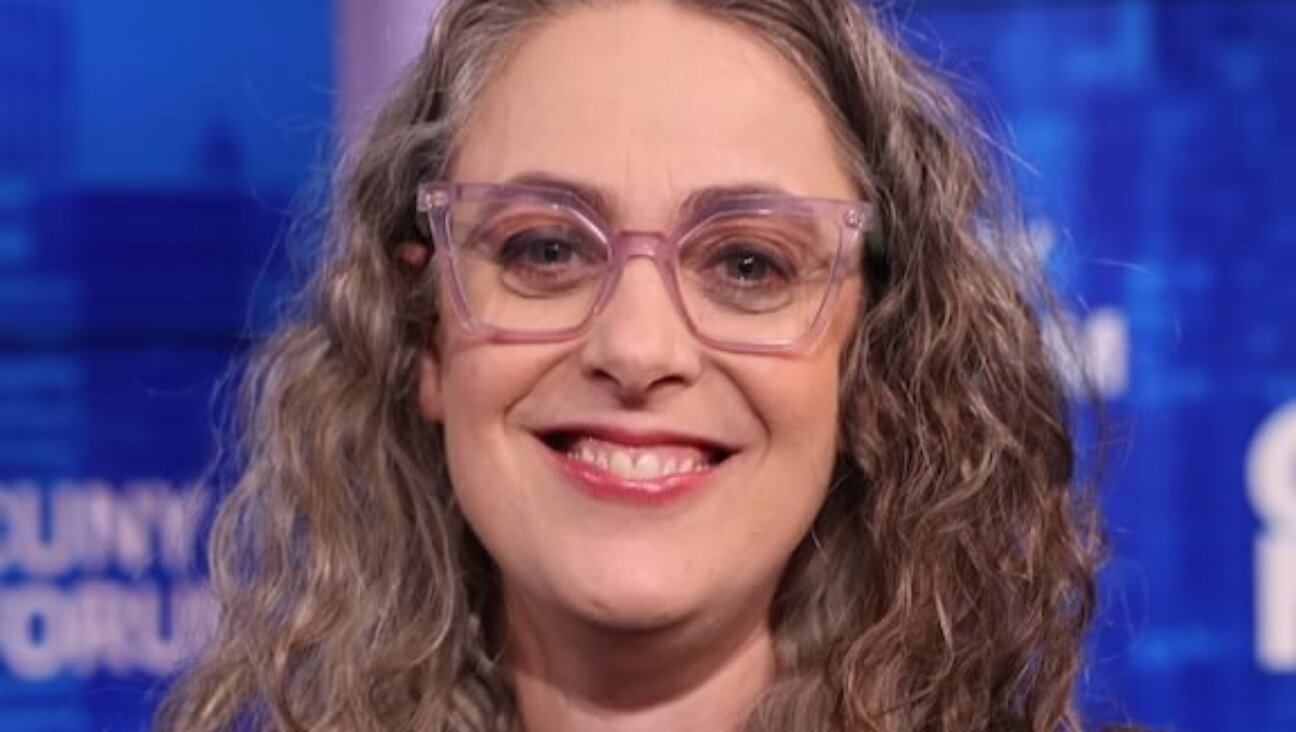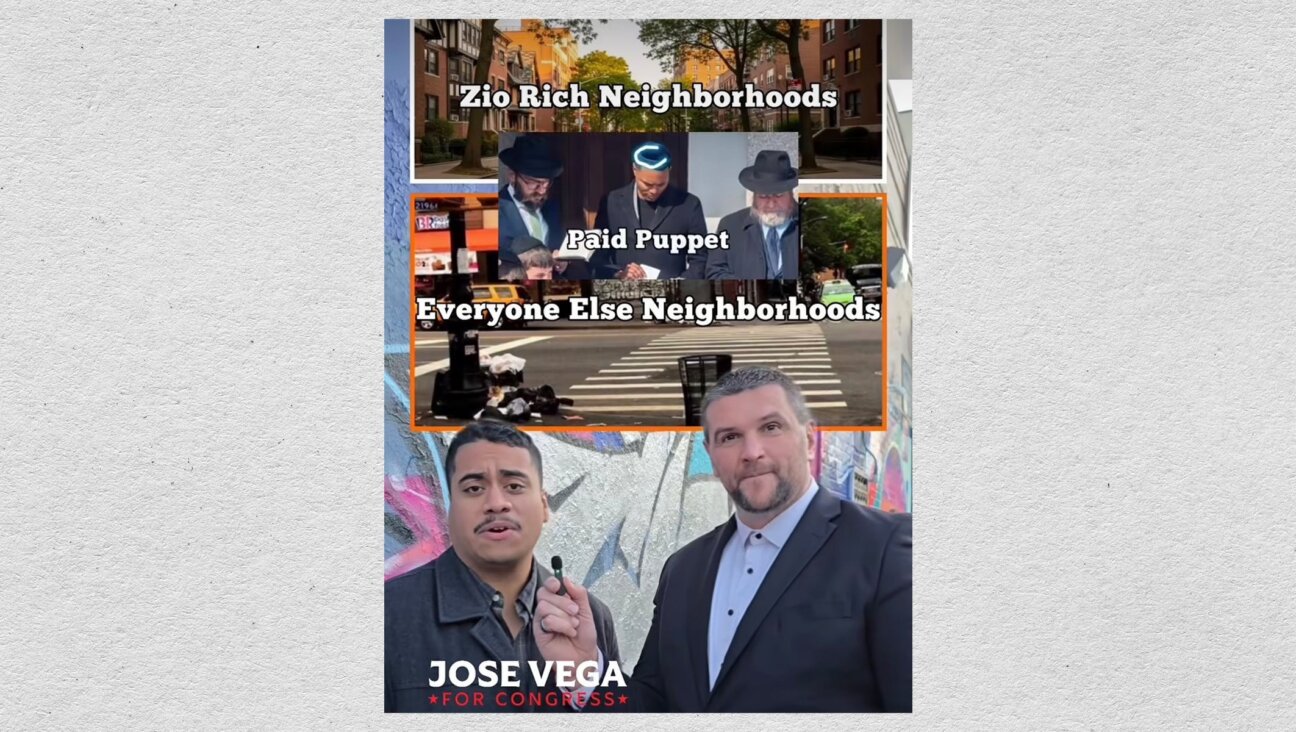Interfaith Leaders Ponder Future of Jewish-Catholic Ties
With the passing of Pope John Paul II, Jewish and Catholic interfaith leaders are voicing concern that future pontiffs could fail to carry on his groundbreaking efforts to deepen relations with the Jewish people.
“We know [John Paul’s] teachings while he was alive,” said Rabbi James Rudin, senior interreligious adviser at the American Jewish Committee. “Now that he’s gone, what will happen? That is the question.”
In some circles, the concern in some circles is that as the church confronts mounting international problems — including a critical shortage of priests and the rise of Islamic fundamentalism — continuing strong ties with the Jewish community will become a lesser priority for future popes who are not personally invested in the issue.
Under such circumstances, some observers say, John Paul’s efforts to repair the church’s relationship with the Jewish people could come to be understood as his own personal initiative, rather than an institutionalized church mandate.
“If a new Pope does not signal support for this work, it could peter out,” said Father John Pawliksowski, president of the International Council of Christians and Jews.
As the church’s first Polish pope, the young Karol Wotjyla grew up in Wadowice and watched Jewish friends be killed by the Nazis during the Holocaust. The result was a pontiff, who, in a unique and personal way, brought to life the teachings of Nostra Aetate, the revolutionary document adopted by the Second Vatican Council in 1965 that renounced the charge that Jews of all generations are responsible for the death of Jesus and are cursed by God, opening the doors to improved Jewish-Catholic relations.
Compounding the concerns about future popes is a new wave of young conservative priests who may be less enamored than their predecessors with the Vatican II reforms, such as allowing the Mass to be said in English.
“Does that mean that Vatican II no longer has the cache that it did for a previous generation?” Rudin said. “There is a concern that the new batch of priests may not be as enthusiastic about the reforms as their teachers and predecessors.”
In countless press releases and media interviews, Jewish communal leaders and dozens of rabbis from around the world — many of whom were welcomed to Vatican City with open arms to meet with John Paul — recalled the late pope’s historic initiatives to reconcile his church with Israel, Judaism and the Jewish people.
During his 26-year reign, John Paul became the first pope to pray in a synagogue; to visit Israel and pray at the Western Wall; to acknowledge the failure of Catholics to confront the Holocaust; to establish diplomatic relations with the State of Israel, and to apologize for the Crusades and the Spanish Inquisition, during which thousands of Jews were tortured and killed in the church’s name.
John Paul called the Jewish people the church’s elder brothers and declared antisemitism a sin against God and man. He affirmed Judaism as an ongoing, valid covenant with God
Despite these groundbreaking efforts, John Paul was criticized at times in Jewish circles.
Jewish leaders criticized his 1982 meeting with PLO leader Yasserr Arafat and his 1987 meeting with Austrian President Kurt Waldheim, who served in a WWII German army unit which deported Jews from Greece. The pope also drew flak from Jewish organizations for naming as saints Edith Stein, a Holocaust victim who converted from Judaism to Catholicism, and Pope Pius IX, who re-established anti-Jewish laws in Rome in the late 19th century.
The 1988 document “We Remember,” the Vatican’s official statement on the Holocaust, drew criticism from some Jewish observers who said that it minimized the church’s role in laying the groundwork for the Holocaust. The critics also complained that the document essentially defended Pope Pius XII, who some Jewish organizations say remained silent and did nothing to help Jews in the face of the Holocaust.
In 2001, John Paul was also criticized for remaining silent when Syrian President Bashir Assad accused Jews of killing Jesus and trying to kill Muhammad during a public meeting with the pontiff.
Most Jewish communal leaders agree, however, that taken in context, the flashpoints pale alongside the pope’s monumental theological and political initiatives concerning Jews and Israel. But the key question now facing world Jewry is whether John Paul’s baton will be passed to his heirs, especially at a time of rising antisemitism in the world.
Experts noted that even during the pope’s lifetime, his own positive statements and texts about Jews were unknown in many parishes and Catholic classrooms.
“Unfortunately, much of the good the pope has done in improving the Church’s relationship with the Jewish people has not reached the pew level,” said Rabbi Leon Klenicki, former director of Interfaith Affairs for the Anti-Defamation League and founding member of the Interfaith Theological Forum of the John Paul II Center in Washington. He cited a little known document called “The Church and Racism,” which points out that anti-Zionism is often used as a form of antisemitism.
Dr. Anthony J. Cernera, president of Sacred Heart University in Connecticut, said it takes at least a half-century for new church laws and teachings to “become integrated in the life of local churches.”
“Is the teaching of Nostra Aetate being received into the life of the whole church? I would say yes,” he said. “Is the process of reception complete? I don’t think so.”
Indeed, at a commemoration of the 40th anniversary of Nostra Aetate last month, Rabbi David Rosen, AJCommittee’s director for international interrerligious affairs, called on the Vatican to increase the teachings of Nostra Aetate in the church’s fastest growing communities in Africa and Latin America.
Pawlikowski said the teaching of Vatican II on Judaism has still not been integrated into the Catholic educational system, and the “disappointing response to the Mel Gibson film by most Catholic leaders, despite its very evident anti-Jewish stereotypes, is a cause for concern.”
But Father Michal Czajkowski, who heads the Polish Council for Christians and Jews, told Ha’aretz that John Paul has already succeeded in making his own personal position on Jews the official position of the church in a way that guarantees its continuity.
“Perhaps his heir will not have the same direct connection to the past, or the same deep sensitivity that characterized John Paul II, but today anyone who thinks or speaks differently in effect cuts himself off from the Church,” Czajkowski said. “I have no doubt, that on this issue, no significant change can occur.”
Jewish interfaith experts declined to speculate on who would become the next pope. Some potential candidates have a record of Jewish relations and several recently attended a two-day conference with Jewish leaders in New York, including Brazil’s Cardinal Claudio Hummes, 70, a moderate, and Italy’s Cardinal Angelo Scola, 63, a traditionalist and expert on Islam.
Rosen said a best case scenario would be a pope who furthers John Paul’s initatives and issues an encyclical enshrining the evolution in Jewish relations.
The worst case scenario would be “a pope for whom this issue is so far off his radar screen that any encouter with Jews is a rare occurrence and the Jewish community gets the feelings its own status and value have been downgraded.”
But no matter who becomes pope, it will be up to the Jewish community and its organizations to keep the teachings of John Paul and Nostra Aetate on the front burner, said Rabbi Gary Bretton-Granatoor, director of interfaith affairs at the Anti-Defamation League. More importantly, he said, with the passing of the pope, the nature of Catholic-Jewish dialogue must change to remain relevant.
While there are still lingering issues to resolve, including Jewish demands that the Vatican open its secret World War II archives, Bretton-Granatoor said the Jewish community must become partners with the church in tackling larger issues affecting the world.
“We know we no longer have a person who grew up in the killing fields of the Nazi regime and was touched by antisemitism himself so profoundly,” he said. “Whoever is in that role from now on is not going to have been touched as personally, so we need to keep that in front of our mind and focus on how we remain relevant dialogue partners.”















